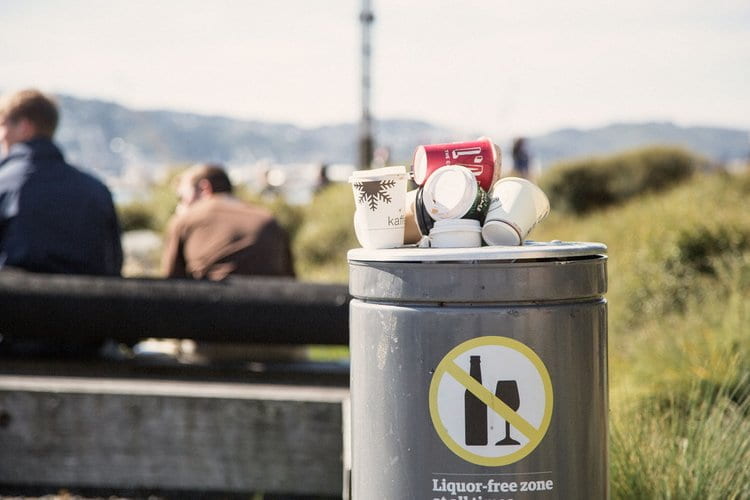A spill-over effect of the recent single-use plastic shopping bag ban is that many people who have now adopted the practice of taking reusable bags to shops are making other efforts to avoid single-use products where possible. This is particularly evident for reusable coffee cups, with numerous initiatives underway to support people to choose a more sustainable alternative.
It is estimated that New Zealanders go through 295 million single-use takeaway coffee cups each year. Purchasing coffee is certainly a habitual practice – and there is great opportunity to support individuals to make that practice more sustainable.
Most cafes now accept reusable cups. People can choose to purchase a reusable cup and take that with them when they buy a coffee. Common Ground Coffee in Dunedin managed to grow the percentage of takeaway coffees that were in reusable cups from 8% to over 60% in just 14 months by having staff talk to customers about the issue of single-use cups and champion reusable cups. The cafe noted that there was a tipping point when around one in every three customers had a reusable cup – the social contagion effect caught on and people were self-conscious if they were not being part of the sustainable movement.

Single-use coffee cups headed for landfill. Photo credit againagain.co.
The cafe noted that there was a tipping point when around one in every three customers had a reusable cup – the social contagion effect caught on and people were self-conscious if they were not being part of the sustainable movement
There will be times when people forget their reusable coffee cups and then their choice is limited to what is available to them. That is where initiatives for renting reusable coffee cups play a significant role. Again Again, Globelet, the Taranaki cup library and Ideal Cup are all based on a similar model of paying a small deposit for a reusable cup when buying a coffee, which is redeemable when you return the cup to any cafe participating in that scheme. These initiatives encourage and support people to adopt a practice of reuse while preventing single-use items ending up in the landfill. To ensure this kind of change spreads throughout the whole community, regulation may be necessary. This could be tested before it is implemented to see the outcome and how effective it is in supporting changing practice through bylaws in certain regions.
